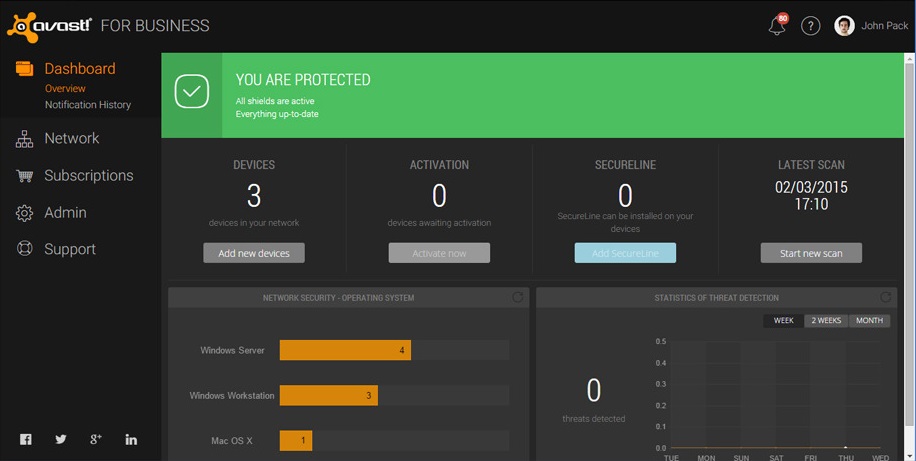“We want to keep our clients and servers in a secure environment.”

Employees at Caritas Design were using different security software making it difficult to manage.
Business owners in every part of the world have the same concerns. Scott Quinn from Montana-based Caritas Design, a small web-design firm run by Scott and his wife Kate, said, “There are lots of viruses out there you need to be protected from. In today’s world we have to protect personal information.”
Echoing that sentiment from clear across the globe is Levent Sılay, a business development executive from Login Business Solutions, a Management Information Systems solution provider based in Istanbul, Turkey. He says their biggest concern is, “to keep our clients and servers in a secure environment.”
Cobbling together a security solution
Both businessmen have tried different solutions in order to create that secure environment. But as many smaller businesses have experienced, the setup was disorganized with people in the company using different solutions simultaneously like McAfee, Symantec, Microsoft Security Essentials, and F-Secure. This cobbling together of security programs meant that management was difficult and disordered. In evaluating better solutions, Silay said, “We wanted a security system which can easily be monitored and managed from a web portal.”
Silay was a long time Avast Free Antivirus user, so once he found out about the free Avast for Business option he didn’t turn back. Quinn had a similar experience. He found Avast Free Antivirus when he was a poor college student. “I was in college looking for the cheapest option, and it had to have boot time scan. So through internet searches, I found Avast.”
Free isn’t always the biggest benefit
Many businesses already have a budget set aside for security, so sometimes free software isn’t the main benefit. Both Quinn and Silay had additional needs. The primary one: “Simple management”.
The advantages of Avast’s cloud-based business security according to Silay are “the quick and easy installation, the monitoring screen that helps in the visualization of all the computers on the network, the online management that can be utilized from anywhere, and the fact that it’s simple and there is no need for training.”

Avast for Business management console
Quinn’s Caritas Design is a startup company, so “Any savings are huge for us.” Because of the years of trust using Avast Free Antivirus, Quinn’s decision was simple. “I’ve been using Avast for my personal and business machines for over 10 years now, and when they released their new online free business portal, I had to sign up.”
“Avast for Business has been outstanding to work with as an enterprise-level solution for my customers,” said Quinn. “I can email silent deployments, manage tasks and scans, and categorize clients by organization or location.”
What’s the catch?
For a free business-grade security solution, the question often comes up about support. Quinn says, “Their support has been amazing on the rare occasions I’ve needed to utilize them. I would, and will, recommend Avast and Avast for Business to everyone I encounter.”
Avast for Business is a free cloud-based security solution available to business owners around the world. Learn more and sign up today.
![]()